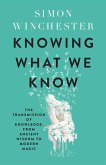Public relations ethics research has been too narrowly focused, resulting in a one-dimensional approach to public relations ethics. During the last couple of decades, an increasing number of professions (e.g., dentistry, nursing, and veterinary medicine) have integrated psychological theories and tests into their applied ethics programs. Their findings have been used to design more comprehensive ethics curricula and bolster ethics training programs. Despite the apparent benefits of including both philosophical and psychological elements in ethics curricula, many ethics programs have been slow to do so. This book explores the implications of integrating psychological theories of moral development into an applied ethics program in public relations. Specifically, it examines how the Four-Component Model (FCM) of moral functioning may be used to create a multi-dimensional approach to public relations ethics research and instruction.







